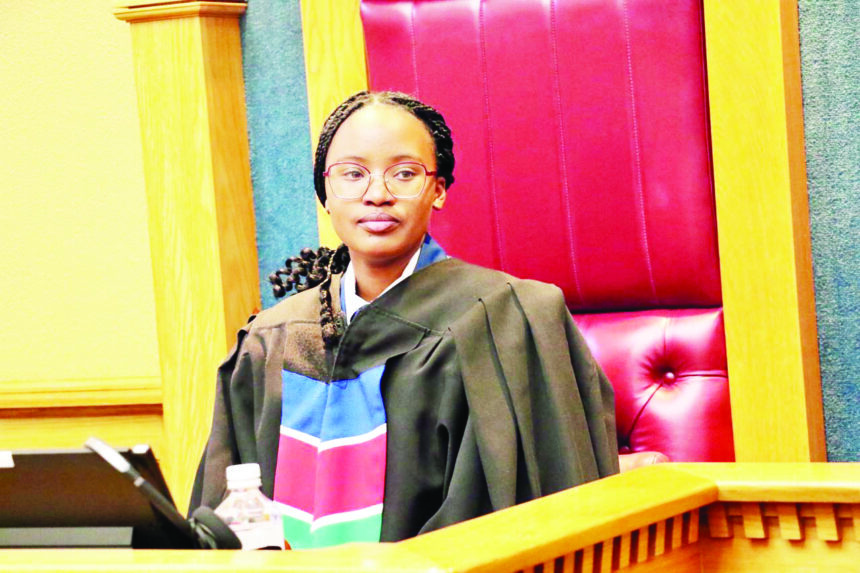Minister of Information and Communication Technology Emma Theofelus has called on members of the sixth Children’s Parliament to develop a sense of self-discipline, and continuously cultivate their leadership qualities.
Delivering her ministerial address at the third sitting of the sixth session of the Children’s Parliament on Wednesday, she said: “Representation marks who we are as a people, but also guides us when we see those who look like us in positions of leadership”.
Theofelus said the young members of parliament, through their participation and contributions, must discuss issues impacting the Namibian child, as they are representing the lived experiences of every Namibian child.
She encouraged them to deliberately contribute and participate in the discussions of the parliamentary sitting.
The minister remarked that she was confident the sixth session would produce leaders who would contribute to the blooming youth leadership in Namibia.
Members of the sixth session tabled motions discussed in the plenary meetings of their respective standing committees.
Staying true to the theme of the sixth session of the Children’s Parliament, ‘Transforming Education in Namibia’, Raulenchia Phillipus tabled a motion, calling for the Namibian government to re-evaluate the free education policy.
“This will allow us to properly access the loopholes that we are currently facing. One of them is inadequate funding. We are not going away from education, but the current loopholes need to be addressed with immediate effect,” she motivated.
Taking a strong stance, Staden Mabibo tabled a motion for the gathering to debate the ban of all narcotics across Namibia.
He motivated that his motion is grounded in a moral and ethical framework that prioritises the health, safety and well-being of citizens and society.
Member of the Children’s Parliament Brandy Pekaha called for the increasing of the age of consent from 16 to 18 years as a measure to mitigate critical issues that continue to plague the nation, such as statutory rape and teenage pregnancy.
Deputy Speaker Michael Ajiboso urged for the order catering for disabled access.
“Many buildings are not wheelchair accessible, which is a critical issue, given the lack of accessibility in social and economic activities,” he said.
He added that a lack of infrastructure and adaptation was just one of the broader challenges faced by people with disabilities in Namibia.
“Accessibility is not just a matter of compliance with legal standards, but it is fundamental to promoting human rights, dignity, equality and the overall well-being of individuals with mobility disability,” he said. -Nampa


